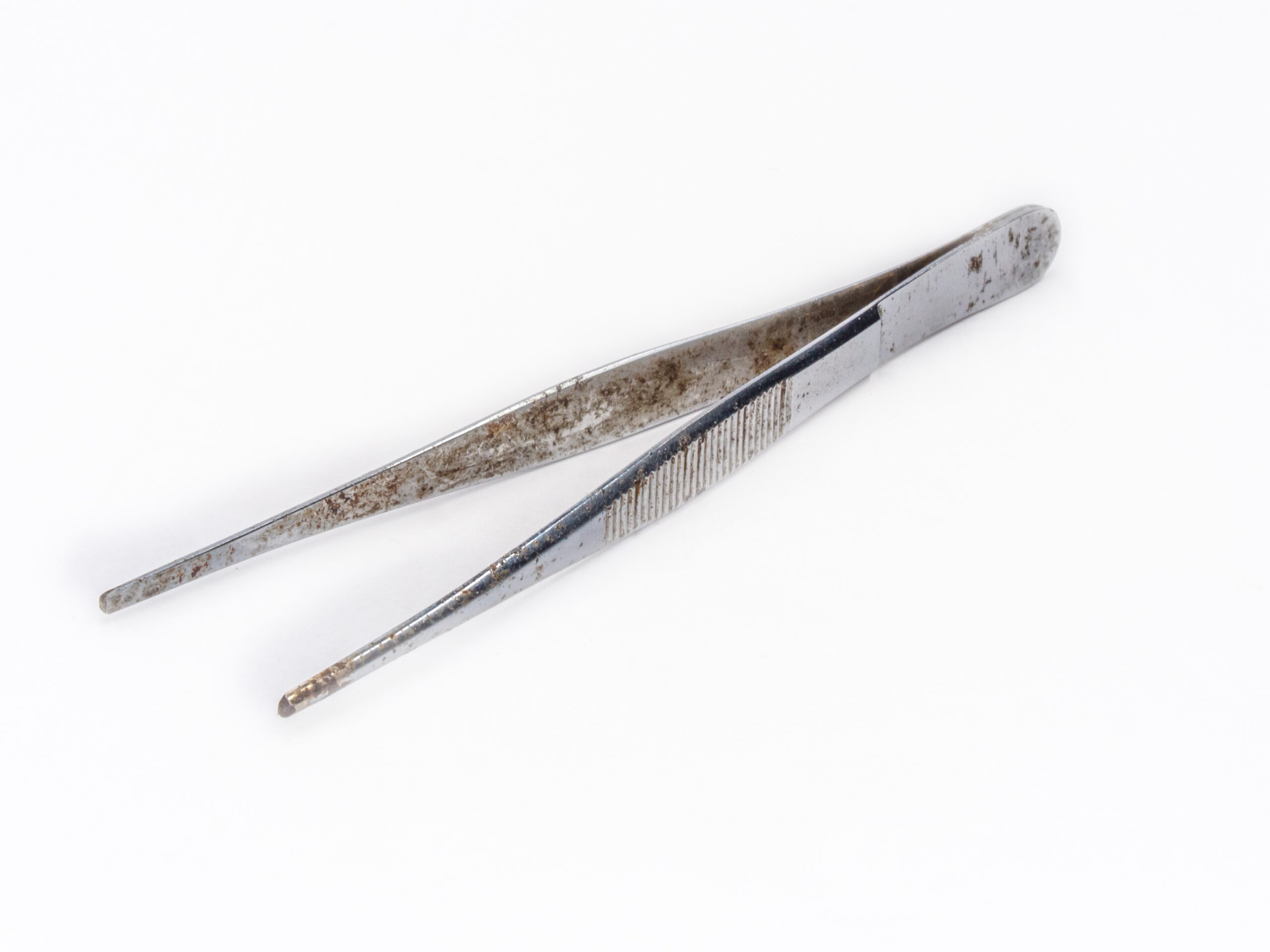Iron and steel exposed to moisture for extended periods of time are liable to develop oxide; a flaking, reddish coating – a.k.a. rust! While not directly harmful to humans, it can cause the structural integrity of the steel to be compromised, and attract and carry harmful bacteria, such as tetanus, which is why most surgical instruments are constructed with stainless steel to prevent rusting. Unfortunately, the chromium oxide layer of these instruments designed to leave oxidation impossible can be damaged and worn away, leaving the possibility of rust very real.
In this article, Team Medical explores some simple, but crucial tips to avoid rust developing on your surgical instruments.
Select Only High-Quality Materials for Your Surgical Instruments
As mentioned above, even though most surgical instruments will state stainless steel as the material of choice, not all have the same integrity and durability against rust. The chromium oxide layer is what protects the instruments from rust developing, and so it therefore means that tools with more chromium present have higher corrosion resistance in their passive layer.
Unfortunately, higher chromium equates to higher initial costs of new surgical instruments – at first. But if you try to save some money upfront by opting to select products released from inferior manufacturers with cheaper materials, you will see significantly reduced lifespans of the instruments, as well as an increased risk of fracturing at the tension points. Making the higher investment up front can not only save you money in constant replacements, but also give you the peace of mind that every use will be without risk of breakdown.
Maintain Proper Storage of All Surgical Instruments
As every surgical procedure is different, so too are the instruments needed to be employed by the practitioner at hand. This in turn creates a variation of storage solutions with a range of ability to prevent and mitigate rust occurring on your instruments.
As oxidation is the cause of rust, sealing away instruments is the safest bet for avoidance. For example, heat-sealed, plastic peel-down pouches are available that are sealed within 3 millimetres of polyethylene overwrap. The best practice is to properly clean and dry instruments and store in a sealed environment away from acidic or alkaline content likely to slowly but surely breakdown the protective layers.
Promote Better Cleaning & Usage
Removing contaminants (blood, saline, organic materials) immediately after use with sterilised gauze and water will work greatly towards preventing deposition of the protective layer on the instruments. Increasing the delay from use to cleaning will continue to increase the likelihood of moisture and other corrosive materials eating into the chromium and damaging the integrity of the instruments with rust.
Reprocessing of surgical instruments should include:
– Decontamination – washing with a cleaning agent or mechanical cleaning device
– Rinsing
– Drying with a lint free cloth
– Packaging
– Sterilisation
– Storage
While robust storage and cleaning protocols can be implemented, and staff can be as steadfast as possible to follow best practice methodologies, there will always be a chance rust can still occur. For example, stain removing compounds and disinfectant solutions applied after use can contain high amounts of acidity, and when applied in large concentrations over a prolonged period, can actually work to degrade the chromium layer of the instruments. While the tool will technically be cleaned, it will have had its structural integrity compromised. Doctors and practice staff should therefore always thoroughly check the integrity of surgical instruments before each and every use to prevent potentially devastating repercussions.
For more information on selecting the appropriate surgical instrumentsfor your practice, as well as how to actively reduce the risks and harmful effects of rust through proper storage, usages and cleaning, contact the friendly staff at Team Medical Suppliestoday by calling 1300 22 44 50 or by leaving your details on our simple online enquiry form.

